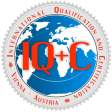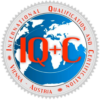ISO 18841:2018 Interpreting Services-General requirements and recommendations
ISO 18841:2018 is an international standard that specifies general requirements and recommendations for interpreting services. This standard covers a wide range of interpreting contexts and aims to ensure the quality and professionalism of interpreting services. It provides guidelines for both spoken and signed language interpreting, applicable to all types of interpreting assignments.
Key Aspects of ISO 18841:2018
- Objective:
- To provide a framework that ensures the quality, consistency, and reliability of interpreting services across various contexts and settings.
- Scope:
- Applicable to all individuals and organizations providing interpreting services, including freelance interpreters, interpreting agencies, and in-house interpreting teams.
- Benefits:
- Ensures high standards of interpreting services.
- Enhances client and stakeholder confidence and satisfaction.
- Facilitates continuous improvement and professional development.
- Demonstrates adherence to internationally recognized standards.
Requirements and Implementation
1. Competence and Qualifications:
- Interpreter Competence: Interpreters must possess the necessary linguistic competence, subject-matter knowledge, and interpreting skills in both the source and target languages.
- Qualifications and Certification: Interpreters should have relevant qualifications and certifications in interpreting. Ongoing professional development and training are essential to maintain and enhance interpreting skills.
2. Professional Practice:
- Code of Ethics: Interpreters should adhere to a professional code of ethics, which includes principles such as confidentiality, impartiality, accuracy, and integrity.
- Professional Conduct: Interpreters must maintain professional behavior, dress appropriately for the assignment, and show respect for all parties involved.
3. Service Provision:
- Preparation: Interpreters should prepare adequately for assignments by familiarizing themselves with the context, specific terminology, and relevant background information.
- Accuracy and Completeness: Interpreters must provide accurate and complete renditions of the spoken or signed communication, ensuring that nothing is omitted, added, or altered.
- Confidentiality: Interpreters must maintain the confidentiality of all information obtained during the interpreting assignment.
4. Client Relationship:
- Client Requirements: Clearly define and document client requirements and expectations for each assignment.
- Communication: Maintain clear and effective communication with clients, ensuring that all requirements are understood and met.
- Feedback Mechanisms: Establish mechanisms for receiving and addressing client feedback to improve future interpreting services.
5. Quality Assurance and Continuous Improvement:
- Monitoring and Evaluation: Regularly monitor and evaluate the quality of interpreting services through feedback from clients and stakeholders.
- Continuous Improvement: Use feedback and evaluation results to make continuous improvements to interpreting services.
- Professional Development: Encourage ongoing professional development and training to ensure interpreters remain up-to-date with relevant skills and knowledge.
6. Technical Resources:
- Equipment and Technology: Ensure interpreters have access to appropriate equipment and technology, such as interpretation booths, audio systems, and other tools necessary for effective interpreting.
- Data Security: Implement robust data security measures to protect sensitive information related to interpreting assignments.
Certification Process
- Preparation:
- Understand the requirements of ISO 18841:2018 and assess the current processes and practices of your organization or individual practice.
- Gap Analysis:
- Conduct a gap analysis to identify areas that need improvement to meet the standard’s requirements.
- Implementation:
- Develop and implement procedures and practices that align with ISO 18841:2018. Ensure all interpreters and staff involved are trained and aware of these procedures.
- Internal Audit:
- Conduct internal audits to verify the effectiveness of the implemented processes and identify any areas needing improvement.
- Management Review:
- Perform regular management reviews to assess the suitability, adequacy, and effectiveness of the interpreting services.
- Certification Audit:
- Engage an accredited certification body to perform an external audit. The audit will be conducted in two stages:
- Stage 1: Review of documentation to ensure compliance with ISO 18841:2018.
- Stage 2: On-site audit to verify the implementation of processes and procedures.
- Engage an accredited certification body to perform an external audit. The audit will be conducted in two stages:
- Certification Decision:
- Based on the audit findings, the certification body will decide whether to grant ISO 18841:2018 certification.
- Surveillance Audits:
- Periodic surveillance audits are conducted to ensure ongoing compliance with ISO 18841:2018.
- Recertification:
- The certification is typically valid for three years, after which a recertification audit is required.
ISO 18841:2018 Interpreting Services-General requirements and recommendations
ISO 18841:2018 is an international standard that specifies general requirements and recommendations for interpreting services. This standard covers a wide range of interpreting contexts and aims to ensure the quality and professionalism of interpreting services. It provides guidelines for both spoken and signed language interpreting, applicable to all types of interpreting assignments.
Key Aspects of ISO 18841:2018
- Objective:
- To provide a framework that ensures the quality, consistency, and reliability of interpreting services across various contexts and settings.
- Scope:
- Applicable to all individuals and organizations providing interpreting services, including freelance interpreters, interpreting agencies, and in-house interpreting teams.
- Benefits:
- Ensures high standards of interpreting services.
- Enhances client and stakeholder confidence and satisfaction.
- Facilitates continuous improvement and professional development.
- Demonstrates adherence to internationally recognized standards.
Requirements and Implementation
1. Competence and Qualifications:
- Interpreter Competence: Interpreters must possess the necessary linguistic competence, subject-matter knowledge, and interpreting skills in both the source and target languages.
- Qualifications and Certification: Interpreters should have relevant qualifications and certifications in interpreting. Ongoing professional development and training are essential to maintain and enhance interpreting skills.
2. Professional Practice:
- Code of Ethics: Interpreters should adhere to a professional code of ethics, which includes principles such as confidentiality, impartiality, accuracy, and integrity.
- Professional Conduct: Interpreters must maintain professional behavior, dress appropriately for the assignment, and show respect for all parties involved.
3. Service Provision:
- Preparation: Interpreters should prepare adequately for assignments by familiarizing themselves with the context, specific terminology, and relevant background information.
- Accuracy and Completeness: Interpreters must provide accurate and complete renditions of the spoken or signed communication, ensuring that nothing is omitted, added, or altered.
- Confidentiality: Interpreters must maintain the confidentiality of all information obtained during the interpreting assignment.
4. Client Relationship:
- Client Requirements: Clearly define and document client requirements and expectations for each assignment.
- Communication: Maintain clear and effective communication with clients, ensuring that all requirements are understood and met.
- Feedback Mechanisms: Establish mechanisms for receiving and addressing client feedback to improve future interpreting services.
5. Quality Assurance and Continuous Improvement:
- Monitoring and Evaluation: Regularly monitor and evaluate the quality of interpreting services through feedback from clients and stakeholders.
- Continuous Improvement: Use feedback and evaluation results to make continuous improvements to interpreting services.
- Professional Development: Encourage ongoing professional development and training to ensure interpreters remain up-to-date with relevant skills and knowledge.
6. Technical Resources:
- Equipment and Technology: Ensure interpreters have access to appropriate equipment and technology, such as interpretation booths, audio systems, and other tools necessary for effective interpreting.
- Data Security: Implement robust data security measures to protect sensitive information related to interpreting assignments.
Certification Process
- Preparation:
- Understand the requirements of ISO 18841:2018 and assess the current processes and practices of your organization or individual practice.
- Gap Analysis:
- Conduct a gap analysis to identify areas that need improvement to meet the standard’s requirements.
- Implementation:
- Develop and implement procedures and practices that align with ISO 18841:2018. Ensure all interpreters and staff involved are trained and aware of these procedures.
- Internal Audit:
- Conduct internal audits to verify the effectiveness of the implemented processes and identify any areas needing improvement.
- Management Review:
- Perform regular management reviews to assess the suitability, adequacy, and effectiveness of the interpreting services.
- Certification Audit:
- Engage an accredited certification body to perform an external audit. The audit will be conducted in two stages:
- Stage 1: Review of documentation to ensure compliance with ISO 18841:2018.
- Stage 2: On-site audit to verify the implementation of processes and procedures.
- Engage an accredited certification body to perform an external audit. The audit will be conducted in two stages:
- Certification Decision:
- Based on the audit findings, the certification body will decide whether to grant ISO 18841:2018 certification.
- Surveillance Audits:
- Periodic surveillance audits are conducted to ensure ongoing compliance with ISO 18841:2018.
- Recertification:
- The certification is typically valid for three years, after which a recertification audit is required.

Why i-LICS Certification?
ISO 18841:2018 provides a comprehensive framework for ensuring the quality and professionalism of interpreting services across various contexts. By adhering to this standard, interpreters and service providers can enhance their credibility, improve client satisfaction, and demonstrate their commitment to maintaining high standards in interpreting services. This standard benefits all parties involved by ensuring accurate, reliable, and ethical interpreting services.

Why i-LICS Certification?
ISO 18841:2018 provides a comprehensive framework for ensuring the quality and professionalism of interpreting services across various contexts. By adhering to this standard, interpreters and service providers can enhance their credibility, improve client satisfaction, and demonstrate their commitment to maintaining high standards in interpreting services. This standard benefits all parties involved by ensuring accurate, reliable, and ethical interpreting services.
Need help? Book a meeting at a time to suit your schedule
If you need assistance, we're here to help! You can book a call with us at a time that suits your schedule. Simply let us know your availability. Whether you have questions, need guidance, or require assistance with our services, we're committed to ensuring you receive the help you need. Contact us today to schedule your call!
Certification Milestones
-
Free strategic meeting
-
Your tailored proposal
-
Confirmation
-
Stage 1 Audit date
-
Stage 2 Audit date (Certification)
-
Obtain your Certificate
Need help? Book a meeting at a time to suit your schedule
If you need assistance, we're here to help! You can book a call with us at a time that suits your schedule. Simply let us know your availability. Whether you have questions, need guidance, or require assistance with our services, we're committed to ensuring you receive the help you need. Contact us today to schedule your call!
Certification Milestones
-
Free strategic meeting
-
Your tailored proposal
-
Confirmation
-
Stage 1 Audit date
-
Stage 2 Audit date (Certification)
-
Obtain your Certificate


